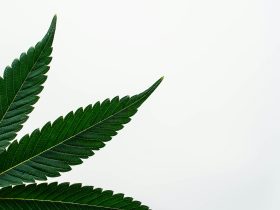CBD, known as cannabidiol, is most recognized for its potential to reduce anxiety, enhance sleep quality, and alleviate chronic pain. Many individuals are curious about whether CBD oil could play a role in promoting weight loss.
Currently, the scientific understanding is still developing and the available data is quite limited. As a result, there is minimal research to suggest that CBD directly aids in weight loss. However, CBD might indirectly contribute to factors that influence weight gain, such as pain relief and improved sleep.
In this discussion, we will delve into the limited research regarding the potential use of CBD for weight loss.
What Is CBD?
CBD is an active compound found in the cannabis plant. Unlike tetrahydrocannabinol (THC), another compound from the plant, CBD does not induce a euphoric or “high” sensation.
CBD operates by interacting with your endocannabinoid system, which regulates various bodily functions including coordination, movement, pain perception, appetite, mood, and more.
The process of creating CBD oil involves extracting CBD from the cannabis plant and then mixing it with a carrier oil like hemp seed oil or MCT oil.
What Does Research Say About CBD Oil and Weight Loss?
CBD is commonly used to alleviate stress, anxiety, and pain. Interestingly, some experts also propose it as a potential aid for weight loss.
Though the research on CBD’s role in weight loss is currently limited and evolving, certain data suggest that it might help:
- Improve sleep
- Reduce anxiety
- Minimize stress
- Manage chronic pain
These factors are all linked to weight gain.
A study from 2015 explored the relationship between obesity and chronic pain, revealing that these conditions often coincide and negatively impact each other.
Given that CBD oil can potentially reduce chronic pain, utilizing CBD products to manage such symptoms could aid weight loss efforts.
A 2018 study noted that the endocannabinoid system, responsible for regulating food intake and inflammation, plays a role in weight gain. Some animal studies even indicate that CBD could boost metabolism and reduce food intake by interacting with two key endocannabinoid receptors: CB1 and CB2.
The same 2018 study found that CBD might stimulate the browning of fat cells, responsible for generating heat and burning calories.
Considerations When Using CBD for Weight Loss
It’s crucial to understand that there isn’t a single best type or brand of CBD oil for weight loss. If you intend to use CBD oil to address pain, stress, or sleep problems contributing to weight gain, focus on selecting a high-quality oil overall.
Our recommendations are based on indicators of safety, quality, and transparency. Every brand and product we showcase undergoes evaluation by our team to meet medical and business standards.
However, due to the limited research on CBD’s role in weight loss, we abstain from recommending specific brands or products. This is particularly important since there is no consensus on the optimal type of CBD for weight loss, or whether it truly aids weight reduction at all.
What to Consider When Choosing CBD Oil?
When you’re exploring and purchasing CBD oils, make sure to:
- Verify Third-Party Testing: Look for a certificate of analysis (COA) from an independent lab, not affiliated with the brand. This helps confirm the stated CBD and THC levels and ensures the absence of contaminants like molds, pesticides, and heavy metals.
- Seek Transparency: Check if the brand openly shares its hemp sources and production methods for its products.
- Check Reputation: Research the brand’s reputation by consulting the FDA warning letter database, searching for pending lawsuits, and reading customer reviews before making a purchase.
While the above are essential, there are other factors to consider:
- CBD Type: Choose between CBD isolate, broad-spectrum, or full-spectrum products. Opt for isolate or broad-spectrum if you want no THC. Select full-spectrum for potential benefits from the entourage effect.
- Ingredients: Review the ingredients list to ensure compatibility. It typically includes carrier oil, and sometimes flavorings and sweeteners.
- Product Variety: If you’re not fond of CBD oil, explore alternatives like topicals or capsules.
By considering these aspects, you can make a well-informed choice when selecting CBD oil.
How to Use CBD Oil?
You have two options for using CBD oil:
Sublingually: Many brands suggest using the dropper to place the oil under your tongue and holding it for up to a minute before swallowing.
- In Food or Drinks: Mix the oil into your food or drink. Although this reduces the oil’s taste, your body might absorb less as it passes through digestion.
- Determining the Right CBD Oil Dosage
Each product in our list provides usage instructions. However, a general guideline is to start with a small dose, monitor how you feel, and adjust after a week.
Dosage varies based on factors such as:
- Your weight
- Goals
- Oil potency
- Body chemistry
Due to the complexities of dosage and safety, it’s wise to consult a doctor or healthcare professional before trying CBD oil for weight loss or starting a weight loss program.
CBD Safety and Potential Side Effects
CBD is generally considered safe, as per the World Health Organization (WHO). However, there are important points to consider before using it.
- Mild Side Effects: CBD can cause mild side effects like nausea, fatigue, and changes in weight and appetite.
- Absorption with High-Fat Meals: Taking CBD with high-fat meals might enhance absorption. Some studies suggest that consuming CBD with fatty foods can increase its absorption, potentially leading to stronger effects and side effects.
- Pregnancy and Nursing: If you’re pregnant or nursing, avoid CBD. The FDA recommends not using cannabis or CBD during pregnancy or while breastfeeding/breastfeeding.
- Medication Interactions: CBD may interact with certain medications, including those with grapefruit warnings.
Before using CBD, especially if you’re taking other medications or supplements, consult a doctor or healthcare professional for guidance.
FAQs About CBD and Weight Loss
Can CBD oil aid in weight loss?
Research is limited, but CBD oil alone may not directly lead to weight loss. However, some individuals find it beneficial as an additional support for their weight loss efforts. It can aid in better sleep and ease exercise-induced soreness and inflammation.
Can CBD oil cause weight gain?
Possibly. CBD oil can affect appetite differently for individuals. Some people experience an increase in appetite, while others notice a reduction.
Will CBD show up on a drug test?
Pure CBD won’t appear on a drug test. However, certain CBD products might contain trace amounts of THC. Even small THC levels could trigger a positive test result. If you undergo drug testing, it might be wise to avoid CBD products altogether.
Does CBD cause drowsiness?
Yes, CBD can make some people feel tired. The impact depends on the dosage and individual body chemistry.
In Conclusion
For weight loss, a balanced diet with fruits, vegetables, whole grains, and lean proteins, along with regular physical activity, is crucial. While some products or medications might aid the process, they’re not standalone solutions.
CBD oil may assist by reducing pain, anxiety, and sleep issues, which can hinder weight loss. As research on CBD’s role in weight loss is limited, consulting a doctor or healthcare professional before incorporating CBD oil into your weight loss plan is advisable.
















Find Us on Socials